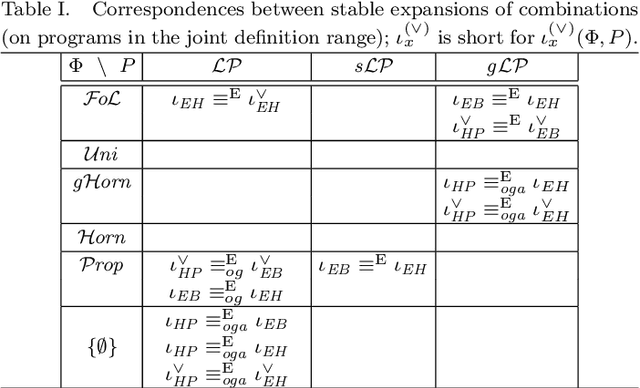Embedding Non-Ground Logic Programs into Autoepistemic Logic for Knowledge Base Combination
Paper and Code
Jun 11, 2010

In the context of the Semantic Web, several approaches to the combination of ontologies, given in terms of theories of classical first-order logic and rule bases, have been proposed. They either cast rules into classical logic or limit the interaction between rules and ontologies. Autoepistemic logic (AEL) is an attractive formalism which allows to overcome these limitations, by serving as a uniform host language to embed ontologies and nonmonotonic logic programs into it. For the latter, so far only the propositional setting has been considered. In this paper, we present three embeddings of normal and three embeddings of disjunctive non-ground logic programs under the stable model semantics into first-order AEL. While the embeddings all correspond with respect to objective ground atoms, differences arise when considering non-atomic formulas and combinations with first-order theories. We compare the embeddings with respect to stable expansions and autoepistemic consequences, considering the embeddings by themselves, as well as combinations with classical theories. Our results reveal differences and correspondences of the embeddings and provide useful guidance in the choice of a particular embedding for knowledge combination.
 Add to Chrome
Add to Chrome Add to Firefox
Add to Firefox Add to Edge
Add to Edge